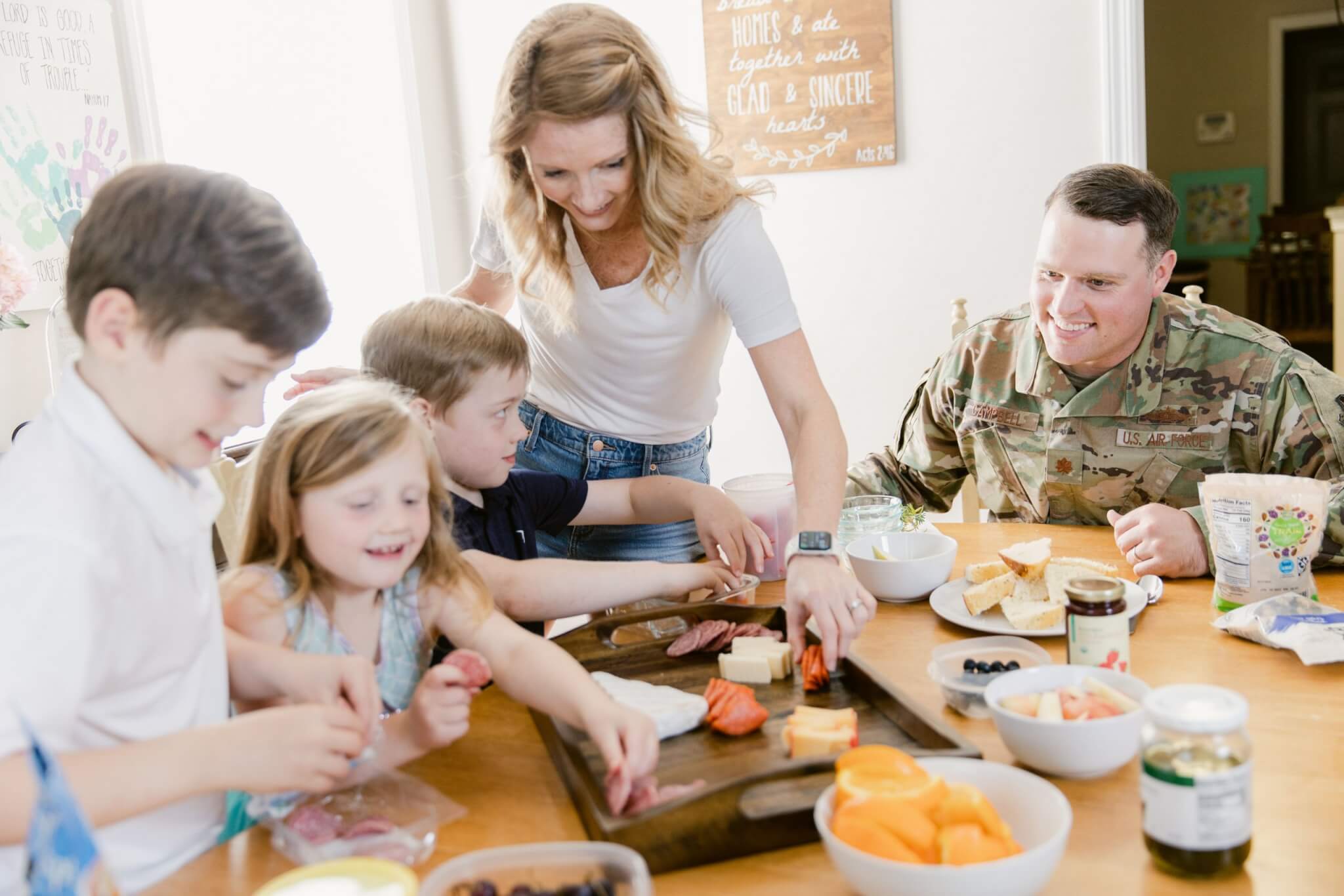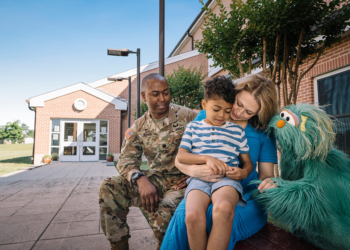A busy household can make attempts at family meals chaotic. We nicknamed it “witching hour” in our house, which is odd because it lasts beyond 60 minutes — from when the children arrive home from school until after dinner.
As a military family, it’s easy to stop prioritizing meals together when balancing long work hours, kids’ activities, planning service member absences and navigating increasingly strained budgets.
Military Special Operations Family Collaborative serves the special operations community across the Department of Defense by supporting the well-being of military families that live in chronically high- stress environments. They identified eight of the most common short-term stress pitfalls used by military families, many of which affect traditions like meals together: unpredictable family routine; fewer practiced family traditions; ceasing family celebrations; skipped family vacations/working on leave; skipping/avoiding family dinner; avoidance of important conversation; limited awareness of invisible wounds; pessimism regarding military service.
However, when used long term, data shows these mechanisms significantly contribute to a decline in performance, health and overall well-being of the service member and their family.
Research by the National Center on Addiction and Substance Abuse (CASA) at Columbia University found that the more often children eat dinner with their parents, the less likely they are to smoke, drink or use illicit drugs. CASA also revealed that adolescents and young adults who seek treatment for depression, anxiety and other emotional problems are about half as likely as their peers to have regular family meals.

From a nutrition point of view, The Academy on Nutrition and Dietetics states that children who join family dinners are more likely to eat more nutritious foods like fruit and vegetables and less likely to consume less-nutritious foods like saturated fats and sodas.
When families intentionally gather for meals, the time is more impactful than simply eating food simultaneously in the same place. Family meals also create opportunities to share culture, heritage, beliefs, favorite recipes and life events — plus foster relationships with each other.
RELATED: Deployment dinners: Pineapple broccoli chicken teriyaki
Through intentionally eating meals together, military families can prioritize creating a consistent, safe space for every family member to land at the end of the day. Here are a few shortcuts to keep the focus on the relationships with the people at our table:
- Give yourself the freedom to observe meals however it works for your family. No matter which meal we share, where we eat, when we eat, or what food we serve, these minor details tend to overwhelm us when planning how to feed our families. Keeping the focus on interpersonal relationships helps us realize that many food rules are insignificant, and we allow ourselves to be experts in what works best for us.
- If time is the limiting factor, look for low-stress ways to save time. Pre-prepped ingredients like ready-to-eat produce, frozen meals or grab-and-go snacks are all great options to lean on without sacrificing your sanity. Planning to eat on the go can be done with packed food from home, or a hybrid of restaurant food with sides from home, like fruits or vegetables.
- If budget is the biggest concern, look for sales and seasonal produce in your local grocer. Take advantage of the commissary benefit, especially with the recent promise of 25% cost savings for patrons. Consider additional resources like nutrition support services from the USDA (SNAP, WIC), the coming basic needs allowance and local food pantries to help ease the financial burden. If eating out, compare the cost savings of eating a la carte or sharing menu items.
With retention rates declining, mental health concerns rising and nearly one in four military families struggling to put food on the table, it is worth considering that eliminating some of the barriers to family meals could be the start of healthier families, stronger communities and a more resilient fighting force.
What if our all-volunteer military community had the resources to feed ourselves well and focus on building stronger relationships with each other instead of worrying about budgets and op tempos? What if military families could prioritize consistently creating a safe place for encouragement and connection, in the limited shared minutes of our days, around a meal together?











































